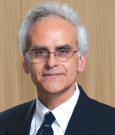Journal of Clinical Oncology (JCO) and Journal of Oncology Practice (JOP) “Exclusive Coverage” summaries, available on ASCO.org and ASCO Connection, are designed to provide quick insight and additional author perspectives on select recently published studies. Based on interviews conducted with the lead or corresponding researchers behind JCO and JOP original research, Exclusive Coverage articles convey the authors’ thoughts on their study’s key points and significance for clinical practice. The articles are written in an accessible style designed for quick reading and provide take-away “Key Points.”
Exclusive Coverage articles can be accessed several ways, via:
- The online article on the JCO and JOP website by clicking on “Author Interview by ASCO”
- The ASCO.org homepage by clicking on “Exclusive Coverage”
- ASCOconnection.org by selecting “Online Exclusives”
- ASCO’s Twitter account, @ASCO
“The Exclusives are part of JCO’s author-centric approach to publishing, which acknowledges that the authors of JCO studies have often dedicated years of hard work to carrying out the highest-quality research,” said JCO Editor-in-Chief Stephen Cannistra, MD, FASCO. “Our goal is to give those authors high visibility, and the Exclusives do just that by enabling authors to share their unique perspectives.”
Take-Home Summaries on a Wide Array of Research
To date, JCO and JOP Exclusives have covered a wide array of research, both U.S.-based and international, and have included additional author insights on such timely topics as: how chemotherapy changes brain activity in patients with breast cancer, how calcium and milk are tied to higher overall survival among people with colorectal cancer, and how new findings are fueling the ongoing debate about robot-assisted radical prostatectomy.
The following is a sampling of quotes from recent Exclusive Coverage articles:
- “It turns out that when the technology and the cost allowed us to throw a wide net on patients’ DNA, we actually found many more actionable mutations that we never would have looked for before. The fact is—it’s a whole new world.”
—James Ford, MD, commenting on the JCO Original Report, “Clinical Evaluation of a Multiple-Gene Sequencing Panel for Hereditary Cancer Risk Assessment.” - “This current study shows that for women with larger tumors, or who have [hormone receptor–negative] tumors, we can probably appropriately discuss the use of chemo among those patients. On the other hand, for patients with low-grade, hormone receptor–positive tumors and HER2- receptors, we can be very confident that the majority of these patients can do well without chemotherapy.”
—Ines Vaz-Luis, MD, commenting on the JCO Original Report, “Outcomes by Tumor Subtype and Treatment Pattern in Women with Small, Node-Negative Breast Cancer: A Multi-Institutional Study.” ■
© 2014. American Society of Clinical Oncology. All rights reserved.


